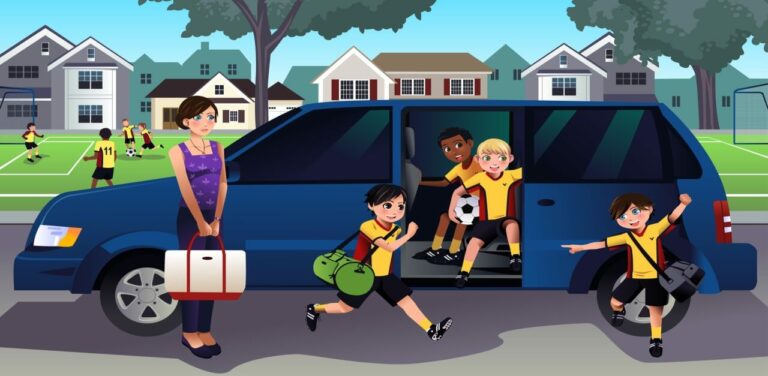Teaching Your Children to Deal With Bullying

An important part of good parenting is helping your children deal with bullying. By teaching them problem-solving skills, your kids will have the confidence they need to take a stand for a peaceful resolution.
Most parents want their children to protect their little ones from pain and conflict. But their kids will likely encounter some bullying behavior sooner or later. Unfortunately, bullying statistics suggest that 70.6% of young people report being a witness to bullying. While it’s tempting to solve their struggles, it’s important to talk with your children to value friendship and resolve conflict.

How Can You Reduce Conflict?
It can be difficult to see your child dealing with harassment or name-calling as a parent. And, while you may want to intervene, it’s best to teach your child about bullying prevention. Here are some ways you can teach your kids to minimize conflict:
- Exhibit the Right Behavior – The first step in helping your child deal with conflict is being a good role model yourself! Instead of failing to communicate effectively, make sure you’re doing everything to maintain a balanced perspective.
- Talk About Feelings – Many kids may not have the tools to express how they feel, leading to outbursts and bullying. By sitting down and talking with your child, they may become better at expressing themselves. Getting to know how your child feels can help to avert potential conflicts.

What Can My Child Do About Bullying?
Showing your children how to communicate effectively is a good place to begin with bullying. Once you have this solid foundation, you can help your children come up with solutions. You may even want to share your strategies with other parents on FamilyApp.
- Consider the Solutions – It may seem easy enough to tell your child what to do. However, this won’t help them avoid conflicts in the future. Instead, come up with ways your child can resolve conflict on their own. If they’re invested in the solution, it will be easier for them to implement it.
- Encourage Emotional Control – It’s essential that your child feels comfortable enough to tell you how they really feel. But getting angry or upset in situations of conflict won’t help them deal with others. Instead of overdoing it, encourage them to be aware of their emotions, exercise empathy, and listen.
- Do Some Role Play – Encouragement is one thing, but doing a bit of role play with your child can be good practice. Bullying in schools is a problem, so taking the time to go through some scenarios is helpful. This will prepare them for real-life conflict resolution when the time comes.

How Can I Help My Child Handle Negative Emotions Constructively?
We all get frustrated and angry, and that’s okay. The trick is to encourage your children to turn their frustration into something more positive. Sports like karate or just running around outside help them get out some frustrations physically and positively. If they’re in a confined space like the bus, they can write out their angst in a journal, rather than bottling up their emotions or lashing out. Or try other activities where your children can have an outlet, whether it’s art, music, dance, or anything that encourages creative expression. If your child has positive outlets, they’re less likely to bully others, and if they are the victim of bullying, they’ll be more likely to respond constructively.
When Should You Walk Away?
There are many things you can teach your little ones when it comes to dealing with conflict. But that doesn’t mean the right resolutions will work. In a bullying situation, your child must know they can walk away. Whether they’ve tried everything or not, they shouldn’t be subject to violence or physical abuse.
If communication doesn’t work, they should feel comfortable asking an adult or teacher to help them. Whether it requires discussion with parents or a sit-down between families, it’s important your child doesn’t feel alone. It’s especially important in situations where severe bullying can lead to psychological trauma. While having the right tools to communicate is key, there’s no need for kids to be left on their own.
It’s no fun for children to deal with conflict, whether it’s cyberbullying or on the playground. However, being able to resolve situations on their own is an important part of their development.
Have your kids had problems with any of their classmates or friends? If they have, please share your ideas for how they resolved conflicts. While the approach will differ from child to child, the right problem-solving tools will help them deal.





